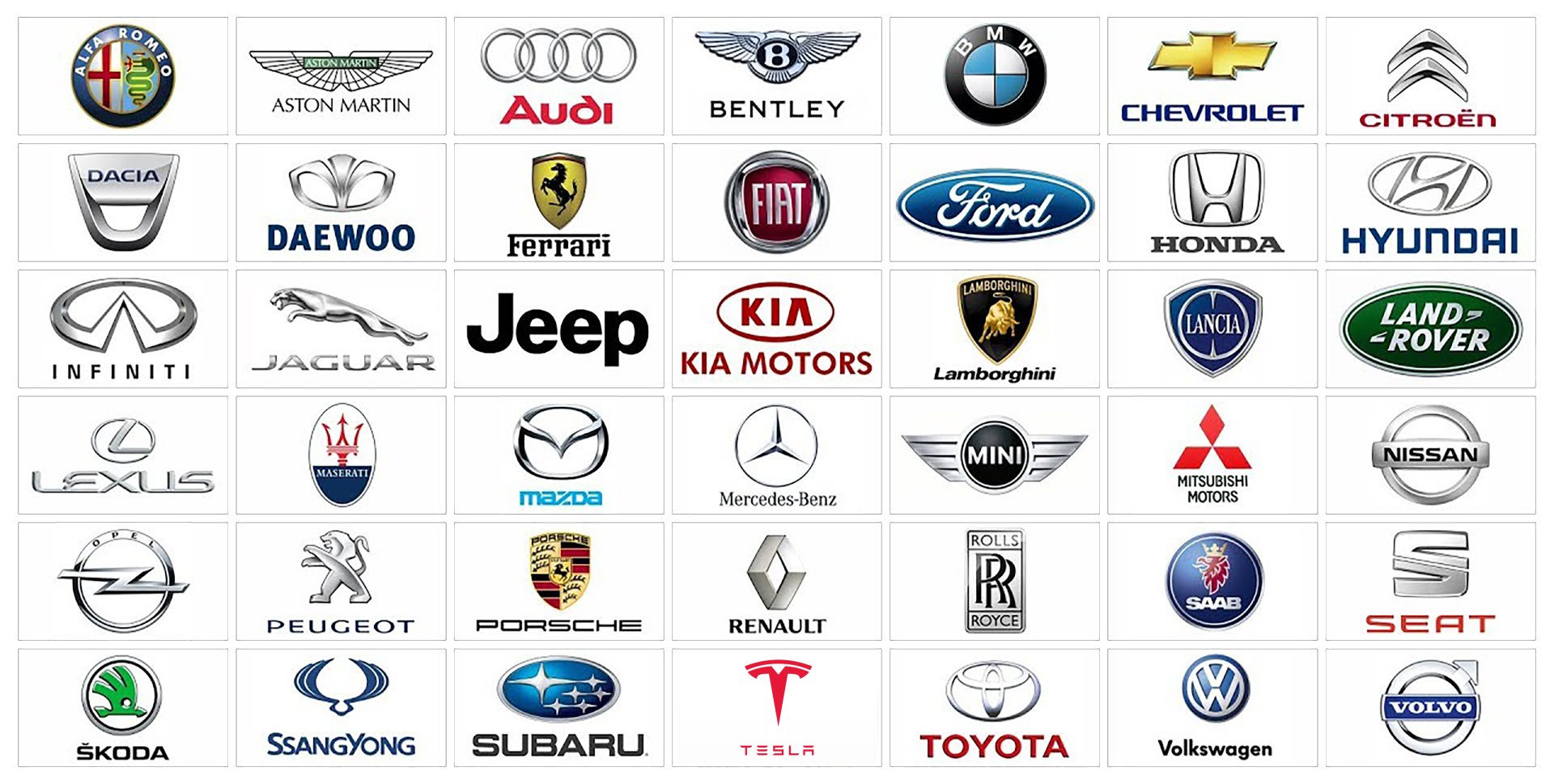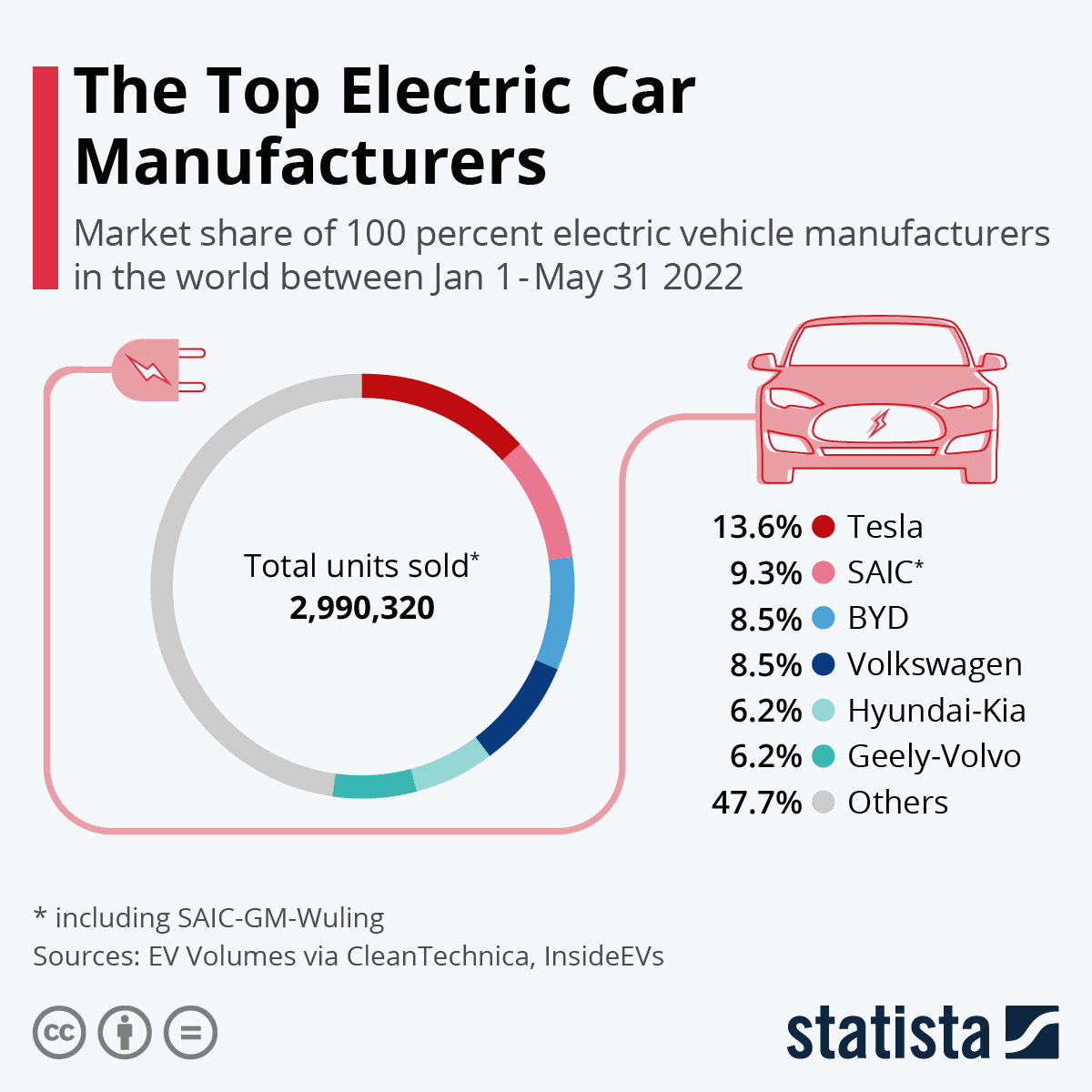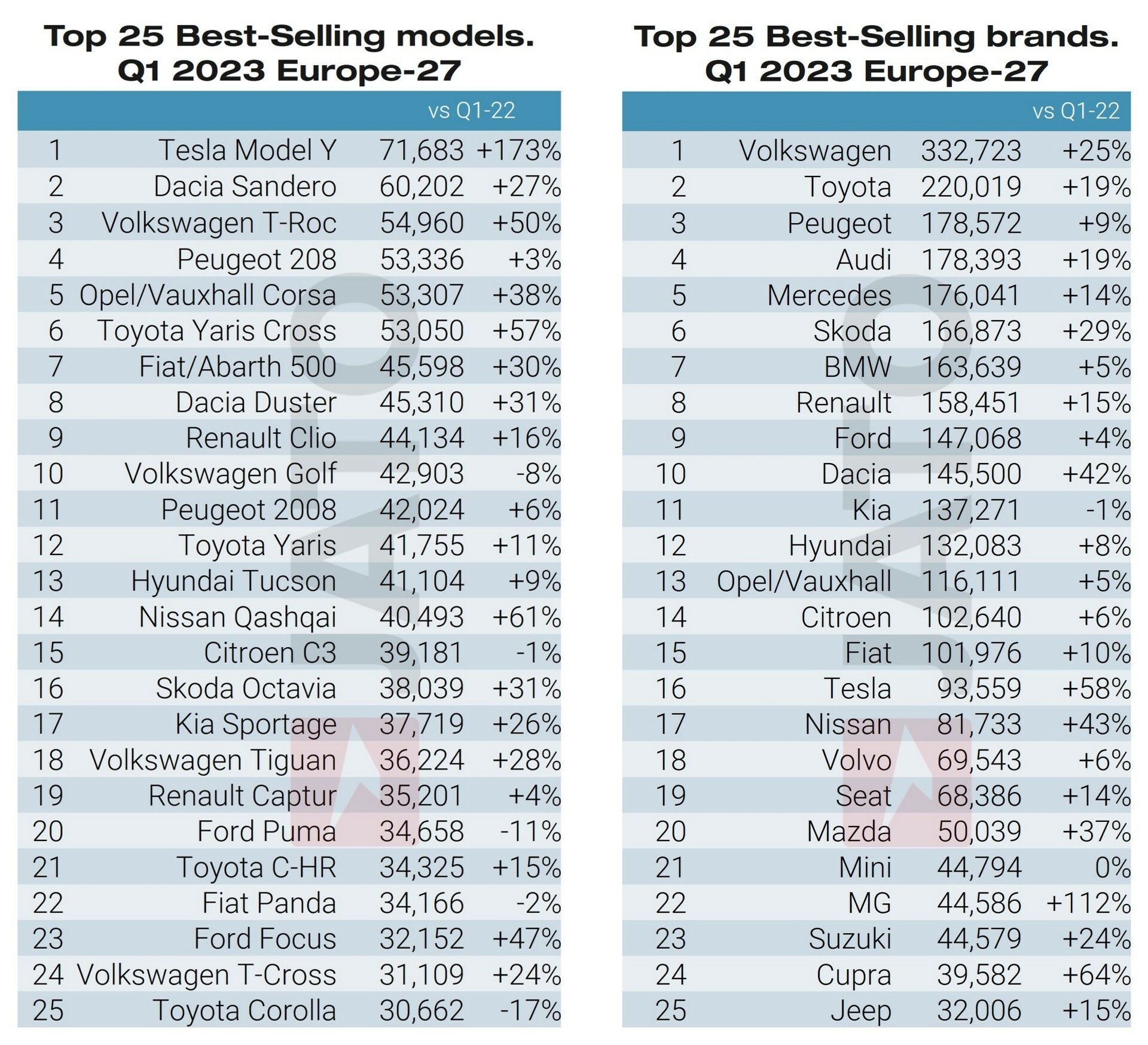Best Electric Car Brands: Navigating the Electrifying Landscape cars.truckstrend.com
The automotive industry is undergoing its most profound transformation in over a century, with electric vehicles (EVs) leading the charge. What was once a niche market is now a vibrant, rapidly expanding sector offering a dazzling array of choices. As more consumers consider making the switch to electric, the question inevitably arises: Which are the Best Electric Car Brands? This comprehensive guide will delve into what makes an EV brand stand out, highlight the top contenders, and provide practical advice to help you navigate this exciting new world.
The Dawn of Electric Dominance: Defining "Best" in the EV Era
Best Electric Car Brands: Navigating the Electrifying Landscape
The concept of "best" is inherently subjective, especially when it comes to personal transportation. However, in the realm of electric vehicles, certain objective criteria emerge as paramount. An "excellent" EV brand typically excels in a combination of factors, including:
- Range: How far can the car travel on a single charge? This is often the primary concern for new EV buyers.
- Charging Speed & Infrastructure: How quickly can the battery be replenished, and how accessible are the brand’s charging solutions (e.g., proprietary networks, fast-charging compatibility)?
- Performance: Acceleration, handling, and overall driving dynamics.
- Technology & Innovation: Advanced driver-assistance systems (ADAS), infotainment, connectivity, and software update capabilities.
- Build Quality & Reliability: Durability, fit and finish, and long-term dependability.
- Design & Comfort: Aesthetics, interior space, and ride quality.
- Sustainability Practices: Beyond just the vehicle’s emissions, the brand’s overall commitment to eco-friendly manufacturing and supply chains.
- Value Proposition: The balance of price, features, and ownership costs (including maintenance and charging).
- After-Sales Service & Warranty: The quality of customer support, dealer network, and battery/vehicle warranties.

Understanding these criteria is crucial because the "best" brand for a daily commuter might differ significantly from the "best" for a luxury enthusiast or an off-road adventurer.

The Leading Contenders: A Deep Dive into Top Electric Car Brands
The EV market is dynamic, with established automotive giants vying for dominance alongside innovative newcomers. Here’s a look at some of the best electric car brands making waves:
Tesla: The Unrivaled Pioneer
Why they’re a leader: Tesla fundamentally reshaped the automotive industry and remains a benchmark for electric performance, range, and technology. Their proprietary Supercharger network is a significant advantage, offering unparalleled reliability and speed. Tesla’s minimalist interiors, large touchscreens, and over-the-air software updates keep their vehicles cutting-edge. Models like the Model 3 and Model Y offer compelling range and performance for their price, while the Model S and Model X push the boundaries of luxury and speed.
Considerations: While build quality has improved, some past issues linger. Service availability can also be a concern in certain regions due to their direct-to-consumer model.

Hyundai & Kia: Value and Innovation from Korea
Why they’re a leader: Leveraging the impressive E-GMP platform, Hyundai (Ioniq 5, Ioniq 6, Kona Electric) and Kia (EV6, EV9, Niro EV) have emerged as powerhouses. They offer excellent range, incredibly fast 800V charging architecture (allowing for rapid DC fast charging), striking designs, and feature-rich interiors at competitive price points. Their commitment to innovation and value makes them incredibly appealing.
Considerations: While their designs are distinctive, they might not appeal to everyone. Brand perception, though rapidly improving, might still lag behind traditional luxury brands for some buyers.
Mercedes-Benz EQ: Luxury Electrified
Why they’re a leader: Mercedes-Benz brings its hallmark luxury, comfort, and sophisticated technology to the EV space with its EQ sub-brand (EQS, EQE, EQB, EQE SUV, EQS SUV). These vehicles offer serene driving experiences, opulent interiors with high-quality materials, and advanced infotainment systems like MBUX Hyperscreen. Their focus is on delivering a premium, refined electric ride.
Considerations: High price points make them inaccessible to many. Their charging strategy relies on third-party networks, unlike Tesla’s integrated solution.
BMW i: Performance with a Premium Electric Edge
Why they’re a leader: BMW’s "i" sub-brand (i4, i5, i7, iX) successfully translates the brand’s "ultimate driving machine" ethos into electric form. They offer engaging driving dynamics, powerful motors, and refined interiors with a focus on driver connectivity and luxury. BMW’s EVs blend performance with everyday usability and impressive technological integration.
Considerations: Similar to Mercedes, they come with a premium price tag. While range is competitive, some models don’t lead their segment.
Ford: Electrifying Iconic American Models
Why they’re a leader: Ford is strategically electrifying its most beloved and successful nameplates. The Mustang Mach-E brings sporty performance and crossover utility, while the F-150 Lightning redefines the electric pickup truck with its immense utility, Pro Power Onboard feature, and strong brand loyalty. Ford’s extensive dealer network also provides a familiar sales and service experience.
Considerations: Still relatively new to the EV game compared to Tesla, their charging network reliance is on third parties. Some initial software kinks have been reported but are generally addressed via updates.
Audi e-tron: Sophistication and Quattro Power
Why they’re a leader: Audi’s e-tron lineup (e-tron GT, Q4 e-tron, Q8 e-tron) combines sophisticated design, refined driving dynamics, and the brand’s renowned quattro all-wheel-drive system. Their EVs offer a comfortable, quiet ride, premium interiors, and advanced technology, appealing to those who appreciate understated luxury and robust engineering.
Considerations: Older e-tron models had less competitive range and charging speeds compared to some rivals. They are also positioned at the higher end of the market.
Porsche: Uncompromising Electric Performance
Why they’re a leader: With the Taycan and the upcoming Macan EV, Porsche proves that electric vehicles can deliver exhilarating, track-worthy performance without compromise. The Taycan offers blistering acceleration, precise handling, and a luxurious, driver-focused cabin, solidifying its place as an electric sports car icon.
Considerations: Exorbitant price points make them a dream for most. Practicality is secondary to performance.
Volvo & Polestar: Scandinavian Design and Safety
Why they’re a leader: Volvo (C40 Recharge, EX30, EX90) and its performance-oriented sibling Polestar (Polestar 2, Polestar 3) offer a distinctive blend of Scandinavian minimalist design, top-tier safety features, and a strong commitment to sustainability. Their vehicles often feature intuitive Google-based infotainment systems and comfortable, eco-conscious interiors.
Considerations: A smaller range of models compared to some competitors. Polestar, being a newer brand, is still building out its service network.
Rivian: The Adventure-Ready Electric Brand
Why they’re a leader: Rivian burst onto the scene with the R1T pickup and R1S SUV, carving out a niche for adventure-focused, off-road capable EVs. Their vehicles offer impressive range, innovative features like the "gear tunnel," and a unique blend of ruggedness and premium design. They also boast their own charging network, the Rivian Adventure Network.
Considerations: As a newer manufacturer, production ramp-up has faced challenges. Their vehicles are also in a higher price bracket.
Chevrolet: Mass-Market Appeal and Ultium Platform
Why they’re a leader: Chevrolet has made strides in making EVs more accessible. The Bolt EV and EUV offer compelling affordability and range for urban drivers. Looking ahead, Chevrolet’s Ultium platform (powering upcoming models like the Equinox EV, Blazer EV, and Silverado EV) promises scalable battery technology, impressive range, and diverse vehicle types, aiming for mass-market adoption.
Considerations: The Bolt faced a major recall (though resolved). GM’s larger EV rollout has been slower than some competitors, but the Ultium platform holds great promise.
Important Considerations When Choosing Your EV Brand
Selecting the "best" EV brand for you involves more than just picking a name from a list. Consider these factors:
- Your Budget: EVs range from entry-level compacts to ultra-luxury sedans. Define your financial comfort zone.
- Your Range Needs: How far do you typically drive in a day? Do you take frequent long trips? Match the car’s range to your lifestyle.
- Charging Access: Do you have home charging available (Level 2 is ideal)? How reliant will you be on public charging, and what’s the infrastructure like in your area?
- Performance vs. Practicality: Are you seeking exhilarating speed or a spacious family hauler?
- Technology & Features: Prioritize the tech that matters most to you – advanced safety, infotainment, connectivity.
- After-Sales Service & Warranty: Research the brand’s dealer network, EV-specific service capabilities, and battery warranty (often 8 years/100,000 miles).
- Resale Value: While a newer consideration for EVs, some brands are proving to hold their value well.
- Brand’s Sustainability: Look into the brand’s broader commitment to sustainability, beyond just the tailpipe emissions.
Tips for Navigating the EV Market
- Test Drive Multiple Models: Nothing beats firsthand experience. Drive various EVs from different brands to feel the difference.
- Understand Real-World Range: Published ranges are estimates. Factors like temperature, driving style, and terrain can affect actual range. Look for owner reviews for real-world figures.
- Research Charging Solutions: Plan your home charging setup and familiarize yourself with public charging apps and networks.
- Consider Total Cost of Ownership (TCO): While EVs often have a higher upfront cost, factor in fuel savings, lower maintenance, and potential incentives.
- Check for Incentives & Rebates: Government tax credits, state rebates, and local utility incentives can significantly reduce the purchase price.
- Read Owner Reviews: Gain insights from current owners about their experiences with reliability, service, and daily usability.
Challenges and Solutions
- Charging Infrastructure Anxiety: While growing rapidly, public charging can still be inconsistent. Solution: Prioritize home charging. Plan long trips using apps that show charger availability.
- Higher Upfront Cost: EVs can be more expensive than comparable gasoline cars. Solution: Leverage incentives, consider leasing, and factor in long-term fuel and maintenance savings.
- Range Anxiety: The fear of running out of charge. Solution: Modern EVs offer sufficient range for most daily driving. Understand your actual needs and choose a car that exceeds them comfortably.
- Battery Degradation Concerns: Worries about battery life. Solution: Modern EV batteries are designed to last the life of the vehicle, with minimal degradation over many years. Warranties typically cover significant degradation.
Price Table: A Snapshot of Leading EV Brands
It’s important to note that EV prices vary widely based on model, trim, battery size, and region, and are subject to change due to market dynamics and incentives. The table below provides approximate starting price ranges for some key models from each brand to give a general idea.
| Brand | Key Models (Examples) | Typical Starting Price Range (USD) | Highlight Feature |
|---|---|---|---|
| Tesla | Model 3, Model Y, Model S, X | $40,000 – $100,000+ | Industry Pioneer, Supercharger Network, Software |
| Hyundai | Ioniq 5, Kona Electric, Ioniq 6 | $35,000 – $60,000 | Excellent Value, Fast Charging (Ioniq models) |
| Kia | EV6, EV9, Niro EV | $35,000 – $75,000 | Bold Design, Fast Charging, Family-Friendly |
| Mercedes-Benz | EQE, EQS, EQB, EQS SUV | $50,000 – $140,000+ | Ultimate Luxury, Refined Drive, Advanced MBUX |
| BMW | i4, iX, i5, i7 | $50,000 – $100,000+ | Driver-Centric Performance, Premium Tech & Comfort |
| Ford | Mustang Mach-E, F-150 Lightning | $45,000 – $90,000 | Iconic Models Electrified, Practical Utility |
| Audi | e-tron GT, Q4 e-tron, Q8 e-tron | $50,000 – $110,000+ | Sophisticated Design, Comfortable Ride, Quattro AWD |
| Porsche | Taycan, Macan EV | $90,000 – $200,000+ | Unrivaled Performance, Driving Dynamics |
| Volvo | C40 Recharge, EX30, EX90 | $45,000 – $80,000+ | Scandinavian Design, Safety-First, Sustainability |
| Polestar | Polestar 2, Polestar 3 | $50,000 – $85,000+ | Performance-Oriented, Minimalist Design |
| Rivian | R1T, R1S | $70,000 – $90,000+ | Adventure-Ready, Off-Road Capability |
| Chevrolet | Bolt EUV, Equinox EV, Blazer EV | $27,000 – $60,000+ | Affordability, Mass-Market Appeal, Ultium Platform |
Prices are approximate starting MSRPs and do not include potential tax credits, incentives, or destination charges. Prices can vary significantly by trim level, battery size, and optional features.
Frequently Asked Questions (FAQ) about Best Electric Car Brands
Q1: What is the average range of a modern EV?
A1: Most new EVs offer a range of 250 to 350 miles on a single charge. Some premium models can exceed 400 miles, while more affordable options might offer 150-200 miles, which is still ample for most daily commutes.
Q2: How long does it take to charge an EV?
A2: It varies significantly by charging method:
- Level 1 (Standard Wall Outlet): Very slow, adds 2-5 miles of range per hour. Best for overnight trickle charging.
- Level 2 (240V Home Charger/Public AC): Adds 20-30 miles of range per hour. A full charge can take 6-12 hours, ideal for overnight charging at home.
- DC Fast Charging (Public DC Chargers): Rapidly charges the battery from 10-80% in 18-45 minutes, depending on the car and charger power.
Q3: Are EVs more expensive than gasoline cars?
A3: The upfront purchase price for an EV can be higher than a comparable gasoline car. However, EVs generally have lower "fuel" costs (electricity is cheaper than gasoline), significantly lower maintenance costs (fewer moving parts), and often qualify for government incentives, leading to a lower total cost of ownership (TCO) over the vehicle’s lifespan.
Q4: What about battery life and replacement?
A4: EV batteries are designed to last the life of the vehicle, typically 8-15 years or more. Most manufacturers offer extensive warranties (e.g., 8 years/100,000 miles) covering significant battery degradation. Full battery replacement is rare and becoming less costly as technology advances.
Q5: Is an EV right for me?
A5: An EV is likely a great fit if you:
- Have access to home charging (garage or driveway).
- Drive within the typical range of modern EVs for your daily commute.
- Are looking to save on fuel and maintenance costs.
- Are environmentally conscious.
- Appreciate a quiet, smooth, and often powerful driving experience.
Q6: Do EVs require a lot of maintenance?
A6: No, quite the opposite. EVs have far fewer moving parts than gasoline cars. There’s no oil to change, no spark plugs, no transmission fluid, and brake wear is reduced due to regenerative braking. Maintenance primarily involves tire rotations, cabin air filter replacements, and checking fluids like windshield washer fluid.
Conclusion: The Electrifying Road Ahead
The electric vehicle market is a testament to rapid innovation and consumer choice. The "best" electric car brand isn’t a single entity but rather a collection of industry leaders, each excelling in different aspects, from groundbreaking technology and luxury to practical utility and affordability. Whether you prioritize range, performance, luxury, or value, there’s an EV brand and model perfectly suited to your needs.
As charging infrastructure expands and battery technology continues to evolve, the advantages of electric driving will only grow. By understanding the key criteria, researching the top contenders, and considering your personal driving habits, you can confidently navigate the electrifying landscape and find the electric car that’s truly "best" for you. The future of mobility is here, and it’s quieter, cleaner, and more exhilarating than ever before.

